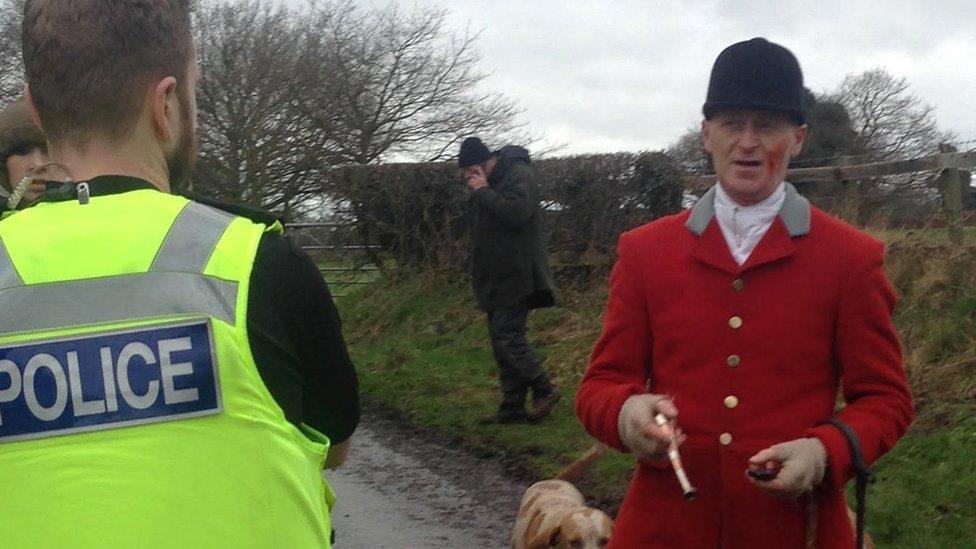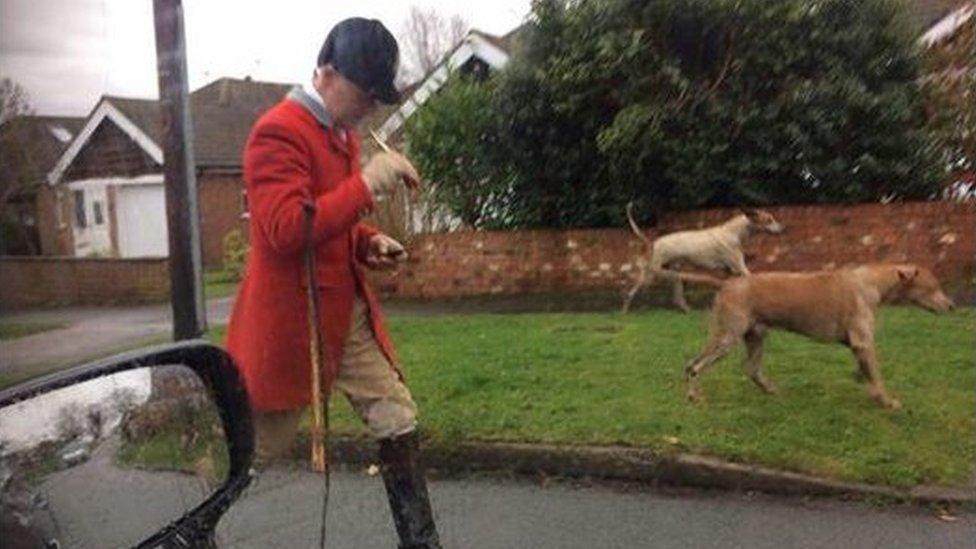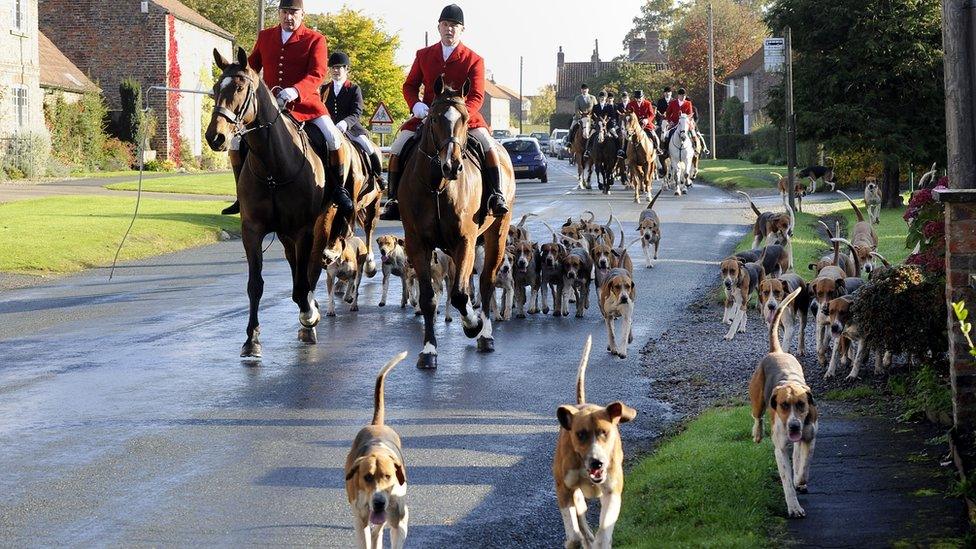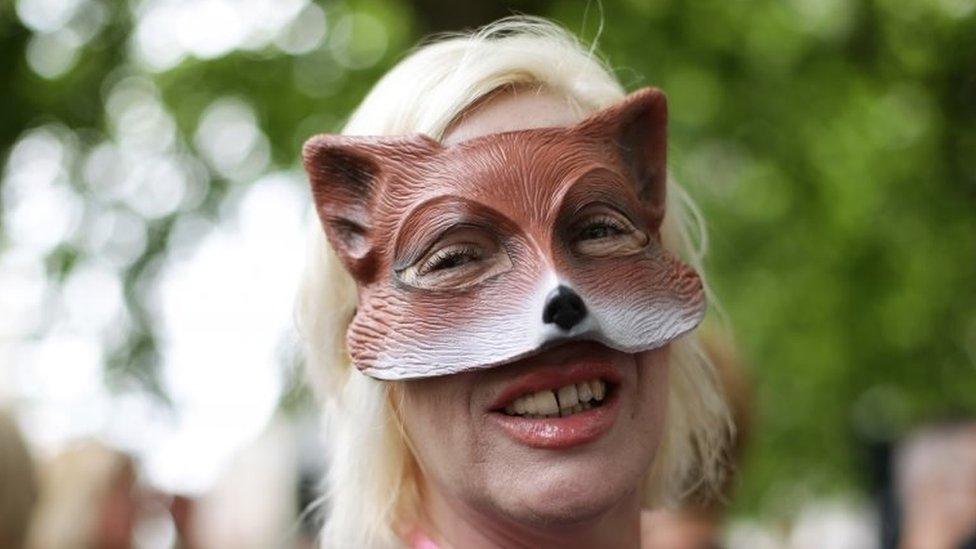Fox hunt law: Calls for changes after Macclesfield decision
- Published
Residents reported "horrific" scenes when the dogs came into Penningtons Lane, Macclesfield
Campaigners are calling for a change in the law after a decision not to charge anyone involved in a hunt that spilled on to a residential street.
Police probed reports hounds filled a street in Macclesfield, Cheshire, in February and allegedly killed a fox.
Lesley Martin from Cheshire Monitors said "the law needs to be strengthened" and loopholes must be tightened.
The CPS said there was not enough evidence to prove the animal's death was caused deliberately.
Ms Lesley, from the anti-hunting campaign group which monitors hunting groups in Cheshire, said the law is inadequate in its current form.

Police were called to the street after the dogs and huntsmen arrived
Resident Julie Clarke, 47, who witnessed the hunt in Penningtons Lane said it was "horrific" and the "dogs were out of control", leaving some locals "traumatised... scared and outraged".
A Crown Prosecution Service (CPS) spokeswoman said police referred two files to them relating to Cheshire Forest Hunt, one on 25 February and the other on 2 January.
"In both cases our prosecutor decided there was not enough evidence to provide a realistic prospect of a conviction", she said.
A spokesman for Cheshire Forest Hunt said at the time they had "apologised" for what had happened.

Fox hunting: What is the law?
In 2004, it was made a criminal offence in England and Wales to hunt down and kill a wild mammal with dogs.
In order to prosecute, a person must be shown to be intentionally hunting the animal - the offence cannot be committed by accident.
Pursuit of live animals has been replaced by trail hunting, which sees hounds and riders follow a pre-laid scent along an agreed route, but foxes and other animals have been known to get caught up in the hunt.


Witnesses said hunt members on quad bikes retrieved the dead fox from a garden
Ms Lesley said the law "really needs to be strengthened... plus we need to have stronger sentencing so it sends a really good message to have these people brought to account".
Legal commentator Joshua Rozenberg said: "I think the problem with the hunting act is that it wasn't very well drafted and it's really quite difficult to bring prosecutions".
"I think those who thought it was going to stop hunting as a sport have been disappointed".
A spokesman for the Department for Environment, Food, and Rural Affairs said they could not comment on individual cases, but whether an offence under the Hunting Act 2004 is taken to court would depend on whether there is sufficient evidence to provide a realistic prospect of conviction.
He said: "The government's manifesto includes a free vote on the Hunting Act. There are no plans for a vote in this session, as with the EU negotiations beginning, this is clearly not a top priority for the first session."
- Published27 February 2017

- Published4 July 2017

- Published3 June 2017
